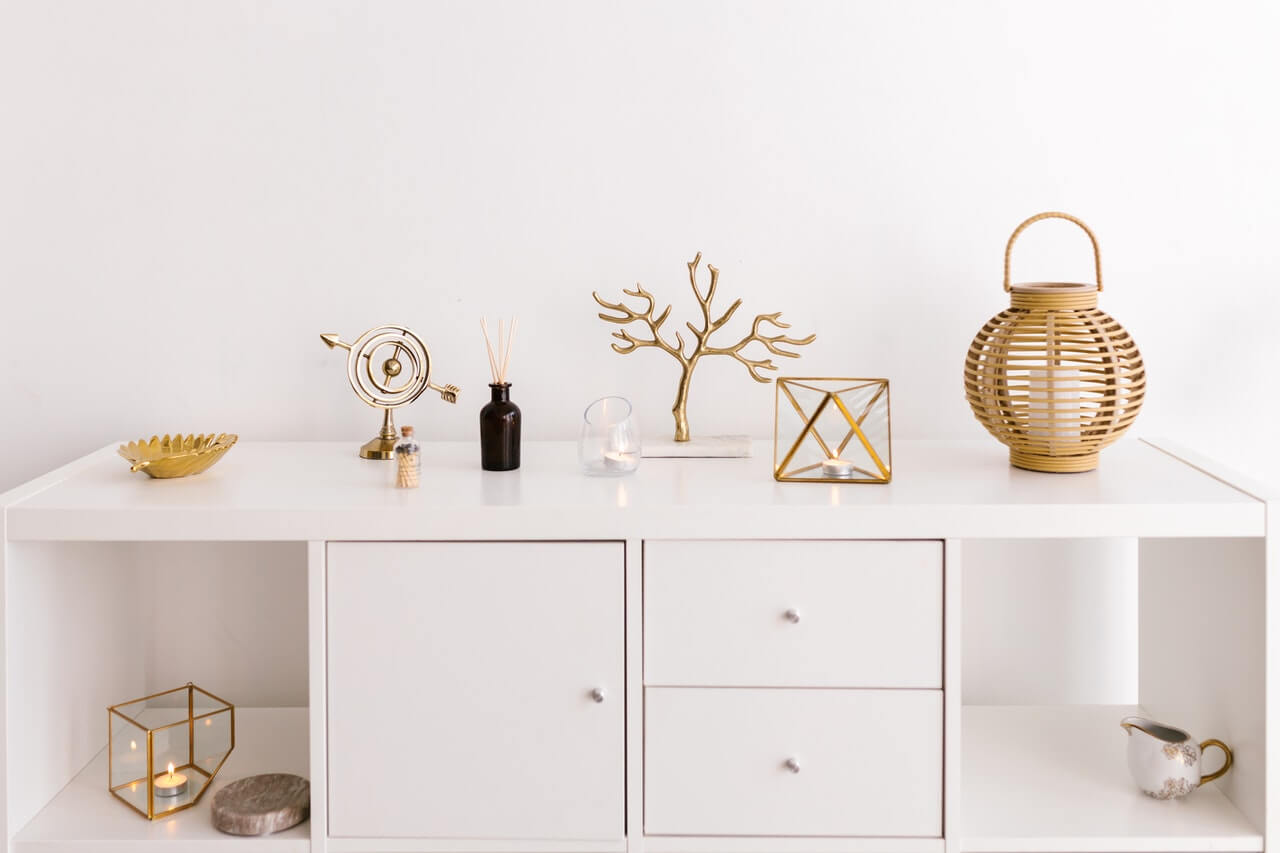The term ‘Zen space’, which encompasses ‘Fung Shui’ has been around for thousands of years, influencing our lifestyles but also the spaces we live in. Most recently, the drive to achieve such a tranquil environment has gained traffic through people like Gwyneth Paltrow and Marie Kondo.
Let me be your guide and help you expand your knowledge of this ancient principle and teach you some simple ways to achieve the perfect Feng Shui space.
Origin and Meaning
Whilst some people may assume it originated from Japan, Feng Shui actually came from China.
It’s an ancient Chinese practice which focuses on finding balance and harmony between the five elements.
Wood – symbolising creativity and growth
Earth – symbolising strength and stability
Metal – symbolising focus and order
Water – symbolising emotions and inspirations
Fire – symbolising leadership and boldness
This balance of the elements within our living spaces is intended to optimise Chi energy.
Feng meaning wind and Shui meaning water, a positive flow of energy should be created to reap the benefits of the Chi energy.
In addition to its five elements, there are nine quadrants which create the Magua map.
These quandrants represent wealth, fame, love, family, health, children, wisdom, career and helpful people.
The map analyses energy in a space and informs you of what elements to bring into the space to enhance its positive energy.
Even though Feng Shui is gaining more popularity within western culture, there’s still a cloud of judgement towards it being a ‘real’ thing.
Studies have shown that the use of Feng Shui has real life positive effects. These include the boost in health and vitality, increases happiness, energy and concentration as well as assisting with problem solving.

9 Tips to create a zen space using Feng Shui
#1. The colour of your space can really play into the ambience of a room and the emotions it can generate.
An aspect of Zen called Shizen (meaning naturalness) focuses on a neutral and natural palette. This doesn’t mean a monochromatic interior but be drawn towards earthy colours such as greens, taupe’s, greys etc.
#2. Identify the commanding position within every room; this is the spot that is furthest away from the door or opening. It shouldn’t be in direct line with it, but you should have a clear sight to the door.
#3. When rearranging a room, start with the largest piece of furniture such as the sofa, bed or desk. This piece should face the door/opening and be placed against the wall to create stability.
#4. The next step when reorganising your space is to declutter and religiously go through the things you own.
This practice known as Datsuzoku, meaning freedom from worldly attachments, basically means you’ve got to ‘Marie Kondo’ your things.
You don’t have to go full monk, but the process is to help you see what you have, understand what you need and let go of the items that are clogging up your space. Doing this step will help the Ki (vital energy) flow.
#5. When injecting smaller pieces of furniture and storage you can either go full Japanese interior, or aim for mid-century furniture, floor cushions and beanbags. Natural materials ground you around the energy.
Woven baskets are also great for storage and creating a Zen space, and the material can also be featured on lampshades.
#6. Texture is also important throughout your interior and décor. Aim to use natural soft furnishings such as linen and cotton.
Natural flooring is also great, whether it’s wood, stone, concrete or earthy titles. Feel the benefits and walk in bare feet.
#7. Uniting the indoors and outdoors is very important in the creation of a Zen space. Keep windows free of heavy curtains and blinds. Instead use flowy curtains and natural wooden blinds.
#8. Plants are your best friend. Feature them around your space. It’s proven that the inclusion of plants makes us feel more settled, increases concentration, improves memory and triggers ‘happy’ hormones.
#9. If you work in an office, there’s little things you can do to make your space a Zen haven. Feature small plants around your desk but ensure it’s not cluttered, buy yourself a miniature zen garden where you can rake patterns in the sand or have a few small crystals around your space.
What to avoid
- Avoid harsh angles within furniture, for example, aim for a circular coffee table within your living space
- Avoid an imbalance of masculine and feminine details
- Blocked doors
- Underbed storage
- Low hung and/or crooked artwork
- Stuffed wardrobes



